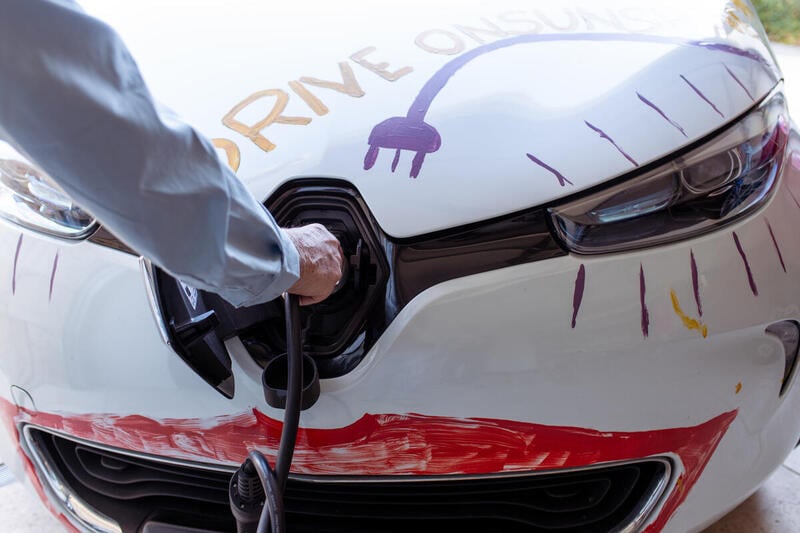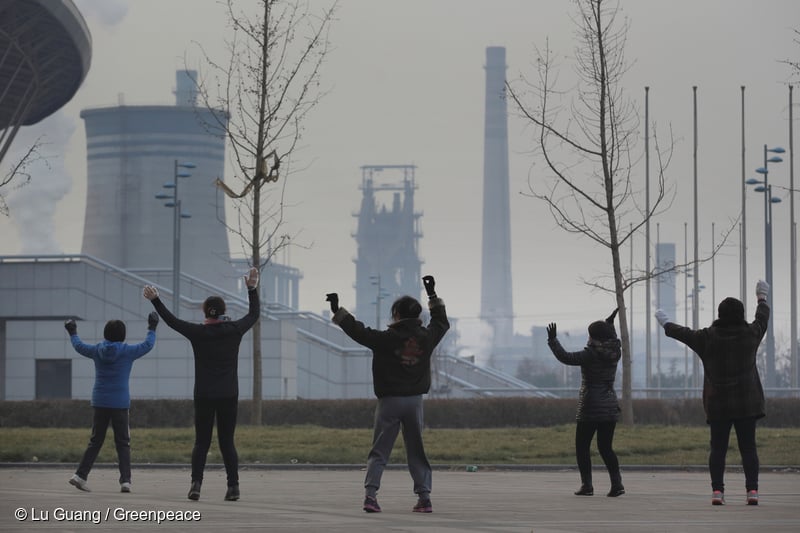Beijing – A Greenpeace East Asia analysis of project planning by top regional economies in China found that investment in energy storage and electric vehicles is growing among Jiangsu and Guangdong, two major regional economies with the potential to become green manufacturing hubs, while all top provinces analyzed continued to add fossil fuel projects.
“For provincial-level governments, everything comes back to maintaining growth. This is perhaps particularly true among wealthy eastern provinces. These provinces are China’s economic juggernauts. They are also its economic testing zones. How they perform dictates behavior by smaller regional economies. When it comes to the energy transition, these are the big ships. They are big ships to turn. And every province in China takes note of these signals,” said Xie Wenwen, a Beijing-based project leader at Greenpeace East Asia.
In China, provinces’ key project lists outline strategic economic projects to prioritize funding and policy support. Greenpeace East Asia researchers analyzed key project lists for Shanghai, Guangdong, Jiangsu, and Zhejiang from 2021 to 2023 for trends in energy projects, energy storage, and electric vehicles. Shanghai, Guangdong, Jiangsu, and Zhejiang are four leading regional economies in eastern China that often act as models or pilot zones to test and scale policy initiatives, such as the low-carbon energy transition.
This year’s analysis showed:
- Energy storage: The number of energy storage projects on Guangdong’s key projects list grew 106.3% from 2021 to 2023, compared to 41.2% in Jiangsu, and 38.6% in Zhejiang.¹
- Renewable energy: Guangdong, Zhejiang, and Shanghai have all already exceeded the amount of wind capacity additions projected for the 14th Five Year Plan period (2021-2025). Guangdong’s solar capacity additions has also exceeded additions outlined for the 14th Five-Year Plan period, and new wind capacity is already triple the planned figure.
- Renewable energy: Among the four, Jiangsu has the highest proportion of renewable energy projects, at 10% of all projects included on the key project list. All other provinces analyzed here had less than 4% renewable energy projects.
- Electric vehicles: In Guangdong, EV projects grew 61% from 2021 to 2023. Among all provinces in China, Guangdong had the highest annual EV production and retention rate in 2022. Jiangsu had the highest growth from 2021 to 2023, a 144.9% increase, the fastest rate of increase among the four. All four provinces have named EVs as a strategic investment sector to receive policy support.
- Fossil fuels: Jiangsu, Zhejiang, and Shanghai provinces all experienced a rebound of the proportion of fossil fuel energy projects in 2023. After decreasing from 2021 to 2022, the percentage of fossil fuel projects on Jiangsu, Zhejiang, and Shanghai’s key project lists all increased in 2023. Guangdong, which pushed natural gas projects in its key project list in 2022, saw a relative decrease in 2023.
- Overall, since 2021, the number of green and low-carbon projects in Shanghai, Guangdong, Jiangsu, and Zhejiang has remained relatively flat, regardless of a call for strategic development of the green economy in those provinces.
National Bureau of Statistics of China data shows that in the first half of 2023, China’s total output of new energy vehicles increased 35% year-on-year, solar cells 54.5% year-on-year, and electric vehicle charging devices (including charging stations and charging piles) 53.1% year-on-year. Investment in clean energy increased by 40.5% year-on-year. And sales of new energy passenger cars increased by 37.3% year-on-year.
Greenpeace calls for key project list approvals to directly factor in carbon intensity and other carbon metrics. Provinces should also develop green and low-carbon project catalogs to identify projects and to channel the limited resources and money into green economies.
ENDS
The full research briefing (in Mandarin Chinese) is here.
NOTES
- All growth percentages are compound annual growth rates (CAGR) unless otherwise specified.
For media enquiries please contact:
August Rick, Greenpeace East Asia, Beijing, ([email protected]), +86 175 1040 4599
Greenpeace International Press Desk, [email protected], +31 20 718 2470 (24 hours)



